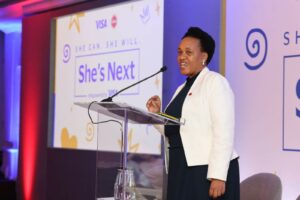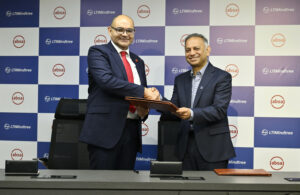Johannesburg, 20 September 2024: Absa is proud to announce its continued partnership with One Young World (OYW), reinforcing its commitment to empowering Africa’s future leaders. As an Executive Partner at this year’s One Young World Summit, taking place from September 18 to 21, 2024, in Montreal, Canada, Absa will lead critical discussions on financial inclusion and entrepreneurship, focusing on youth and women across the continent.
The annual One Young World Summit brings together the brightest young leaders from over 190 countries and 250 organisations, all dedicated to accelerating social impact. Over the course of four transformative days, delegates engage in impactful speeches, interactive workshops, and extensive networking opportunities.
Dr. Steven Zwane, Managing Executive of Corporate Citizenship, says, “We are excited to work with One Young World once again to reaffirm our commitment to being an active force for good. This collaboration aligns perfectly with Absa’s efforts to partner with the United Nations Sustainable Development Goals (SDGs) and our ambition to be the home for top talent in Africa.”
Since 2021, Absa’s partnership with One Young World has made significant strides, the Absa OYW delegates have impacted over 22,000 beneficiaries across eight African countries. Through the efforts of 43 Absa OYW Ambassadors, the organisation has successfully aligned its initiatives with eight key SDGs, addressing critical areas such as gender equality, climate action, education, and poverty alleviation.
Key accomplishments include:
- Gender Equality: Empowerment initiatives for 570 women, training programs for 160 individuals, and support for 224 girls to remain in school.
- Climate Action: Planting 23,590 trees and providing clean energy and water solutions.
- Education and Poverty Alleviation: Raising R200,000 for autism education, distributing over 16,000 meals, and making a positive impact on more than 9,000 individuals.
This year, Absa is taking its commitment to the next level by sending 20 young professionals and one Absa Fellowship fellow, as well as country representatives, cluster representatives, and corporate functions, to the One Young World Summit. These individuals are not just attendees but are recognised as changemakers, poised to lead and inspire.
At the summit, Absa will take the stage to lead discussions on financial inclusion, with a focus on empowering African youth and women. Between 2019 and 2023, Absa invested approximately R1.49 billion ($83 million) in social impact initiatives, positively affecting over 1.25 million individuals across its markets. These investments have driven significant societal and economic improvements, particularly in education, employability, income generation, financial literacy, and corporate community support.
“As Absa continues to focus on financial inclusion through entrepreneurship, the organisation is dedicated to fostering employability opportunities, empowering the next generation of African leaders.” Zwane concluded.
.png)
.png)
.png)
.png)
.png)
.png)
.png)

.png)
.png)





















